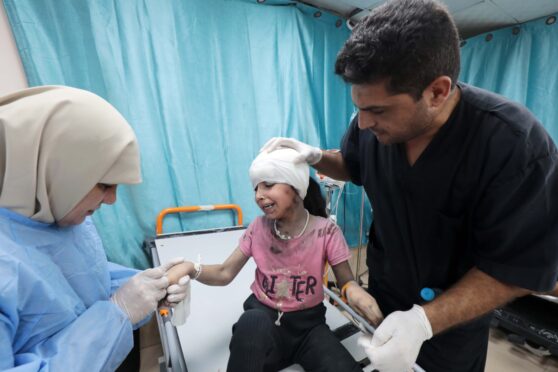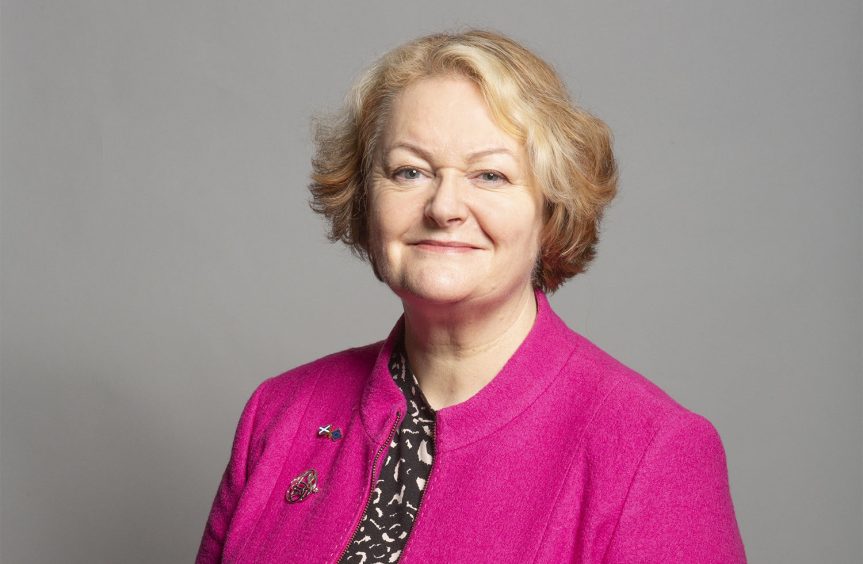
MP and cancer surgeon Philippa Whitford has warned seriously-ill patients are being left untreated as Gaza’s hospitals are overwhelmed by the crisis.
The MP for Central Ayrshire has been a leading figure in setting up breast cancer care in Gaza that was modelled on Scotland’s. Its purpose is to increase early detection, good standards of treatment and survival.
During the 1990s, Whitford worked for 18 months as a medical volunteer in a UN hospital in the Gaza Strip.
She spent the 2016 parliamentary recess in the West Bank to operate on four women suffering from breast cancer and visited Gaza hospitals to advise on how to improve healthcare.
Whitford still takes part in weekly online meetings with doctors in Gaza, but says much of their work has been halted.
“A lot of the medical services have stopped as doctors are treating bombing casualties. Weekly meetings take place between healthcare professionals in Scotland and Gaza, to discuss and plan cancer patients’ care. I last spoke to medical colleagues at Shifa Hospital in Gaza City on Tuesday, and they are fearful of what is happening.
“It is impossible to move patients when they are so ill, and the roads have been bombed and are impassible.”
My thoughts are with Rasha, Mahmoud & whole @MedicalAidPal team in #Gaza, who are struggling to help civilians in desperate circumstances.
I worry for Drs & Nurses we work with on our #BreastCancer project, as many can’t abandon their patients in #ShifaHospital in #GazaCity. https://t.co/f4QrSieaIF— Dr Philippa Whitford (@Dr_PhilippaW) October 14, 2023
She said she feared surgeons specialising in cancer surgery would have been diverted by the sheer number of casualties.
Whitford called on world leaders to persuade Israel to stop its bombardment.
“What Hamas did was horrific, no one should condone that and my sympathies go out to the victims of those atrocities. But to retaliate by killing defenceless people including babies and children only creates a new generation of terrorists,” she said.
Her warning was echoed by Ghassan Abu-Sittah, a surgeon working at a hospital in Jabalia refugee camp, which has come under intense bombardment, who said only life-saving surgery was now performed.
“All hospitals are now reliant on diesel and generators, but fuel will eventually run out,” he said.
Fabrizio Carboni, regional director for the Middle East for the Red Cross, outlined the dire consequences of a prolonged blackout, including newborns in incubators and elderly patients on oxygen being put at risk.
“Kidney dialysis stops and X-rays can’t be taken,” he said. “Without electricity, hospitals risk turning into morgues.”

Enjoy the convenience of having The Sunday Post delivered as a digital ePaper straight to your smartphone, tablet or computer.
Subscribe for only £5.49 a month and enjoy all the benefits of the printed paper as a digital replica.
Subscribe © PA
© PA